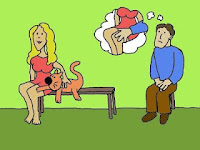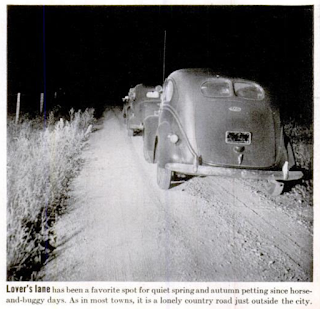 |
Watching the ships sail away, Yokohama harbor, 1966.
|
I made
a post about a Japanese woman my family knew who was born in Mukden and ended up working for the US armed forces Far East Network.
This is about her daughter, whom I mentioned in that post.
Well, she grew up as a fairly normal child of postwar Japan and graduated from what is called a commercial high school, basically a trade school, as I understand it, where she learned to type and take dictation and file. That sort of thing. After graduation, she went to work for a subsidiary of Nissan. She was ambitious, and assumed that she would advance through company loyalty and hard work. In the new Japan, with it's Franklin Roosevelt New Deal American-guided emphasis on equality and opportunity, there could be no doubt of that, she believed.
However, after several years of serving tea and smiling politely and being asked to entertain VIPs, she came to realize that no matter what the official line was, she could never be anything more than an "office lady," as Japanese termed women who worked in the corporate world.
She was not happy about the situation, but didn't know what to do. Finally, an egregious episode of sexual harassment that her boss laughed off decided her to quit, an unheard of thing for someone working in a giant conglomerate like Nissan; you were part of the Nissan family and lived in Nissan-built housing, took vacations to Nissan-owned resorts, and, of course, drove a Nissan car. In return you were guaranteed a job for life, with retirement on a generous pension at age 55.
She threw all that away and found a much lower-paying job with a small cosmetics company. The reason she took the job was because they promised to send her to the United States as a demonstration model and sales representative.
The USA was the promised land, according to her mother, so she leaped at this opportunity. She arrived in the States during the Bicentennial, and traveled to department stores everywhere from Raleigh to Minneapolis, Jacksonville to Pocatello. You mention a city to her and she will name the department store she worked at.
Her contract with the cosmetic company was limited, however, and after it was up, she returned to Japan.
But she had seen a different world, one in which she saw women in charge of entire store departments, handling purchasing, sales campaigns, you name it.
 |
| The Evangeline in the early 1980s. |
The women did not defer to men, as far as she could tell, and it astounded her to see women order men about and get promoted above them.
She had to get back to America. She worked a few more years at various jobs, saving every yen until she had enough to pay for study in the United States. She flew to Los Angeles and found a room at the Evangeline, a women's residence near downtown and began studying English at Evans Adult School.
The world she entered was harsh and unforgiving, with no second chances. For example, at the Evangeline, meals were served at certain times and if you wanted to eat, you couldn't be late. Five minutes after the dining room doors were opened, they were closed and locked. You could eat as much as you wanted, but you had to clean you plate completely. You were not allowed to take any food out of the dining room, not even a cracker. Proctors with hawk eyes watched everything that went on. You couldn't even talk too loudly without being chastised. She recalls another Japanese student who tried to take a boiled egg out of the dining room after eating breakfast, slipping it into her pocket to eat later. She was caught and expelled from the residence. Gone by noon.
Absolutely no alcohol was allowed on the premises and anyone who tried to smuggle any in would be kicked out.
No men were allowed to enter the Evangeline beyond the lobby. And then only if they had business, the mail man or UPS driver.
The women who lived at the Evangeline were either foreign students or old white ladies, each of whom had a story of why they had ended up there at the end of their lives. None were good stories.
The Evans Adult School was equally harsh, the teachers demanding that you perform at your best and unwilling to accept less than that. She particularly recalls a Miss Rosen, a bitter woman who had failed to earn a Ph.D., and now taught ESL to a motley collection of foreigners she made no effort to hide her contempt for. She was constantly reminding her students that if she thought they were not sincerely trying, she would have them expelled, their student visas revoked, and they would be deported. She hammered into them the fact that Evans was support by the taxes of American citizens who expected them to work hard and be successful in return for their education.
She remembers that two Chinese (perhaps Taiwanese) students were expelled at the order of their teacher, a Mrs. Yamamoto, because they had, in Yamamoto's words, "betrayed her," presumably by cheating.
After completing her course of study at Evans, she attended Pasadena City College, intending to get an AA degree in bookkeeping. She didn't think any higher than this.
She left the Evangeline and moved to South Pasadena, becoming an au pair girl for a well-off family. They put her in the laundry room, next to the cat's litter box. She slept on an inflatable camp mattress on the floor. She cooked and cleaned, did laundry. She also did the grocery shopping, being given a limited budget to do so. Many days, the family ate all of the meals she prepared and she had nothing to eat. Her weight dropped from 107 lbs to 95 lbs during her time with this family.
She had difficulty with her classes at PCC because her English was not up to college reading levels. Sometimes she would spend two hours on a single page, going back over each sentence again and again, dictionary in hand, trying to grasp it's meaning.
But eventually she improved, so much, in fact, that one of her instructors told her she should not settle for being a bookkeeper, but should get a four-year degree in accounting and become a CPA.
He recommended the accounting program at UCLA. Unfortunately, just at that time there was some kind of professors dispute at UCLA and the entire accounting department left and joined what was then called Pierce College (now Cal State Northridge). As a result of this, there was a waiting period of more than a year before new accounting students would be accepted.
 She was, however, able to be accepted into the accounting program at USC. To pay for this, she took a job as a book keeper for a Japanese firm in Little Tokyo. Her hours there were very long, and she often didn't return home till after 2am. Then she would do her au pair chores and prepare meals which the family could heat up for themselves. This arrangement was not accepted and she was discharged.
She was, however, able to be accepted into the accounting program at USC. To pay for this, she took a job as a book keeper for a Japanese firm in Little Tokyo. Her hours there were very long, and she often didn't return home till after 2am. Then she would do her au pair chores and prepare meals which the family could heat up for themselves. This arrangement was not accepted and she was discharged.
She found out she was no longer the family's au pair when she came home from work one night and saw her belongs piled on the front porch and a note telling her to collect them and go.
For the next few weeks, she lived at her place of employment, keeping her belongings in a pay locker at the downtown LA Greyhound bus terminal.
When her boss found out he put an end to that. She moved into a room at the Rosslyn Hotel next to skid row in downtown LA. Initially, she paid $100 a month for the room, which swarmed with cockroaches and had no bathroom -- that was down the hall. But then she got a job working the front desk and her room became free. So she was working two jobs plus going to USC full time. Her weight dropped to 92 lbs. She developed a chronic cough.
She did not own a car, in fact did not know how to drive, so walked or took the bus everywhere. She shopped for clothes at used clothing stores, but usually nothing fit her; everything was too big. So she would alter them herself, cutting and sewing while she manned the hotel front desk.
Despite all, she managed to graduate from USC with an accounting degree and also passed the state CPA licensing examination. She applied for work at the Big Eight accounting firms, as they then were, one of which was run by a self-described USC mafia -- everyone on staff was a USC alumnus. They hired her at a good salary -- a fabulous salary as far as she was concerned. She was able to move into a studio apartment in a decent neighborhood, learned to drive at a driving school and bought a used Toyota Corolla. She spent almost all her waking hours at work, the demands of her clients and bosses were brutal, but she was happy to have a real job working as hard and appreciated as much as her male colleagues.
After a few years, she bought a house in Burbank and a new Camry. Then she was hired by one of her clients at a substantial increase in salary. She had an expense account that was not closely monitored and a company car, a Buick Park Avenue.
The company owned a number of restaurants at which she and her guests could dine for free -- Il Fornaio, Norwood, Johnny Rockets and several others.
She gained so much weight that she had to go on a diet.
As a weekend getaway, she bought a condominium in Avalon on Catalina Island, and a 27-foot Neptune sailboat.
After a few years, with a thorough knowledge of how to make money in business, she started her own company, which became quite successful. She bought a house in Palos Verdes, drove a Lexus, sailed a 44-foot Pacific Seacraft yacht. She traveled extensively, developed an interest in opera and bought season tickets to the New York Metropolitan Opera, vacationed in Europe to see operas there. In short, she was successful, well-off and enjoying the good life.
As an example of how well-off she had become, her last business venture, something involving a Brazilian company, resulted in a personal loss of $4 million. She was flat-out cheated by the Brazilians, as she tells it, and has nothing good to say about that country or its people. "All they have is credentials and pride!" she says, though I'm not really sure what that means. She says she was robbed seven times on trips to São Paulo and had to ride around in an armored limousine.
She was able to sell her investment in the Brazilian company and recover her loss, but then decided it was time to retire.
So these days she tends her flower garden at her home, enjoys the view across the ocean to Catalina Island, and talks about her life with interested visitors.
She loves America and thinks it's the greatest country in the world -- "this country is so generous!" she declares with honest emotion -- and is contemptuous of anyone who has a bad word to say about it. She despises American blacks and thinks they should be "dealt with in some way." She says they should be ashamed to behave as they do and doesn't understand why they are not embarrassed by their criminality and parasitism. She likes Mexicans, admiring their hard work. She acknowledges they aren't all that bright, "but that doesn't matter," she says, "because they are not ashamed to work at whatever job they can do, no matter how hard it is. They will be successful in this country."
She doesn't like Chinese, saying they cheat and are dirty, but her best friend is a Chinese born in Japan, who now lives in Monterey Park in Los Angeles. She points out that although this person was born in Japan she is still regarded as Chinese by Japanese and she could never become Japanese, but had she been born in America she would be considered just another American.
Would she, herself, have liked to have been born in America? "Yes!" Why? "Because then my English would be good."
Those days at Evans and the Evangeline still live in her mind. As do her days as an au pair. She can't stand the sound of a washing machine and has her laundry sent out. She visited Japan recently to claim her Japanese social security benefits, a pitifully small amount but she earned it and would have it, and visited her brother, who lives in a modest apartment in Chiba. To her, everyplace was crowded and ugly, everything was small, even yogurt cups, overpriced and not as good as anything in America. She left earlier than she had planned to because everywhere she went reminded her of why she left. Her only regret that she wasn't able to leave when she was 10 years younger.

 "A girl phoned me the other day and said, 'Come on over, nobody's home.' I went over. Nobody was home."
"A girl phoned me the other day and said, 'Come on over, nobody's home.' I went over. Nobody was home."














































